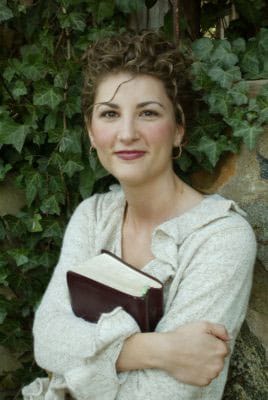Podcast: Play in new window | Download (Duration: 48:21 — 33.2MB) | Embed
Subscribe: Apple Podcasts | Spotify | Amazon Music | Android | Pandora | iHeartRadio | JioSaavn | Podchaser | Gaana | Podcast Index | Email | TuneIn | Deezer | Anghami | RSS | More

“Why then is it the woman who is veiled? First, the woman is the model of Church (as pointed out by Saint Paul), and the Church is the mystical body of Christ. Much like the Eucharistic body of Christ is veiled under various layers, so too is the Church, and the woman represents Church.
Second, it is the woman that brings forth new life, the most profound manifestation of mystery capable in the created realm. It is the woman that gives birth to a new person and thereby changes the entire created order – even the angels are not capable of such a mystery. As Christ turned His blood into the Eucharistic food for his disciples, so too does the woman change her own blood into food for her infant.
We veil what is most sacred, and understood in this manner it is not so much that the woman wears a veil out of respect for the Church, but rather the Church gives a veil out of respect for the woman” (Jake Tawney).
For other episodes in this series, visit the Discerning Hearts Sonja Corbitt page
Scripture References for The Show
Luke 1:46-55, the words of the Magnificat
And Mary said:
“My soul magnifies the Lord,
47 and my spirit rejoices in God my Savior,
48 for he has regarded the low estate of his handmaiden.
For behold, henceforth all generations will call me blessed;
49 for he who is mighty has done great things for me,
and holy is his name.
50 And his mercy is on those who fear him
from generation to generation.
51 He has shown strength with his arm,
he has scattered the proud in the imagination of their hearts,
52 he has put down the mighty from their thrones,
and exalted those of low degree;
53 he has filled the hungry with good things,
and the rich he has sent empty away.
54 He has helped his servant Israel,
in remembrance of his mercy,
55 as he spoke to our fathers,
to Abraham and to his posterity for ever.”
2 Chronicles 16:9, For the eyes of the LORD run to and fro throughout the whole earth, to show his might in behalf of those whose heart is blameless toward him.
Genesis 49:26, The blessings of your father are mighty beyond the blessings of the eternal mountains, the bounties of the everlasting hills; may they be on the head of Joseph, and on the brow of him who was separate from his brothers.
1 Corinthians 11:13-17, Judge for yourselves; is it proper for a woman to pray to God with her head uncovered? Does not nature itself teach you that for a man to wear long hair is degrading to him, but if a woman has long hair, it is her pride? For her hair is given to her for a covering.
In Old Testament times, uncovering a woman’s head was seen as a way to humiliate a woman or to punish adultresses and those women who transgressed the Law (e.g.., Numbers 5:12-18, Isaiah 3:16-17, Song of Solomon 5:7).
John 12:1-8, Mary Magdalene uncovers her hair and anoints Jesus.
Episode Resources
My Promise and Purpose Await in Integrity, Sonja Corbitt
Veiling in the Liturgy, Jake Tawney
Covering Up for Others, Nan Balfour
CCC 490-492, To become the mother of the Saviour, Mary “was enriched by God with gifts appropriate to such a role.” The angel Gabriel at the moment of the annunciation salutes her as “full of grace”. In fact, in order for Mary to be able to give the free assent of her faith to the announcement of her vocation, it was necessary that she be wholly borne by God’s grace…
The “splendour of an entirely unique holiness” by which Mary is “enriched from the first instant of her conception” comes wholly from Christ: she is “redeemed, in a more exalted fashion, by reason of the merits of her Son”. The Father blessed Mary more than any other created person “in Christ with every spiritual blessing in the heavenly places” and chose her “in Christ before the foundation of the world, to be holy and blameless before him in love”.
INTERACTIVE SCRIPTURE MEDITATION EXERCISE (LECTIO DIVINA)
This week’s lectio exercise is based on an Ignatian approach. Go on! Try it!
Read (Lectio)
Six days before the Passover, Jesus came to Bethany, where Laz’arus was, whom Jesus had raised from the dead. There they made him a supper; Martha served, and Laz’arus was one of those at table with him. Mary took a pound of costly ointment of pure nard and anointed the feet of Jesus and wiped his feet with her hair; and the house was filled with the fragrance of the ointment.
But Judas Iscariot, one of his disciples (he who was to betray him), said, “Why was this ointment not sold for three hundred denarii and given to the poor?” This he said, not that he cared for the poor but because he was a thief, and as he had the money box he used to take what was put into it. Jesus said, “Let her alone, let her keep it for the day of my burial. The poor you always have with you, but you do not always have me.”
Meditate (Meditatio)
Place yourself in this narrative, first as Jesus, then Mary Magdalene, and lastly, as Judas. What do you see, hear, feel on or against your skin, smell, taste? What are your thoughts and emotions from each point of view as the episode plays out?
Pray (Oratio)
Talk to God about whatever rises up in your heart and mind. What do you sense He might want you to do this week? How do you feel about that?
Rest (Contemplatio)
Perhaps you’d like to take a few minutes to sit at Jesus’ feet like Mary Magdalene.
For more resources and Sonja’s scripture meditation exercise for this episode visit the “Bible Study Evangelista“ website

 Sonja’s books can found here
Sonja’s books can found here
Sonja Corbitt is the Bible Study Evangelista. She’s a Catholic Scripture teacher with a story teller’s gift – a Southern Belle with a warrior’s heart and a poet’s pen.
We’re all sweating and dirty with the effort to love and lift all He’s given to us – those people, duties, callings, and longings that break our hearts and make them sing, sometimes at the same time. But most times, we need to be loved and lifted ourselves.
So her Bible study media are created with you in mind, bites of spinach that taste like cake, to help you make space in your busy heart and schedule for God to love and lift you all the way up into His great lap, where all you’ve been given is loved and lifted too.


